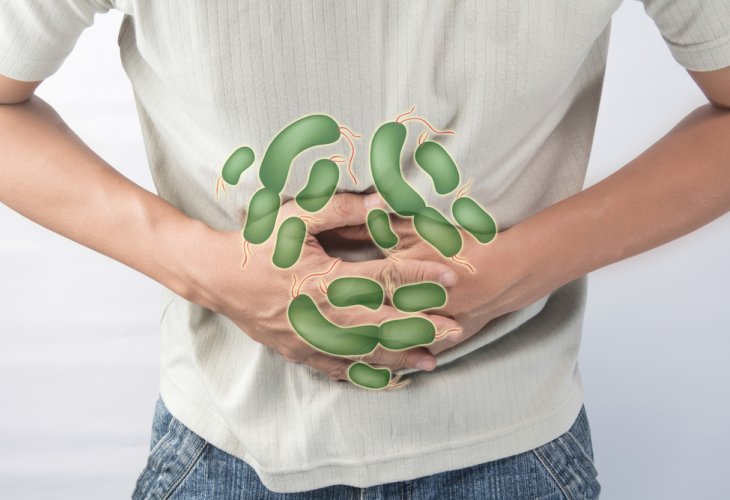Understanding Helicobacter Pylori: A Hidden Digestive Issue
Helicobacter Pylori—a common but often misunderstood stomach bacteria. Why antibiotics alone aren't the solution.
 (Photo: Shutterstock)
(Photo: Shutterstock)Are you plagued by burping, recurring stomach pain, discomfort, heartburn, nausea, bloating, anemia, early satiety, or a lack of appetite? You might have Helicobacter Pylori in your stomach (or duodenum—the beginning of the small intestine), just like most people today.
First discovered in Australia during the 1980s, this bacterium was quickly linked to nearly every digestive issue around. For those over 65, about 90% are hosts. The suspected transmission is through saliva. Unlike other bacteria, it survives in the stomach by attaching to cells, sparking inflammation, and causing nearby stomach cells to die and break down.
Don’t panic! It’s essential to realize that this cell destruction can end quickly with gentle treatment of the stomach and a special cleansing diet. With this diet, all problematic stomach and intestinal symptoms can disappear, and a new, healthy tissue starts to grow underneath in days to weeks (more on this in Part Two of this article).
Gastritis may develop into a wound called an ulcer. It’s important to know that gastritis is very common after prolonged use of acid-reducing medications like Losec or Omeprazole. Over the years, inflammation can worsen and potentially lead to stomach cancer, G-d forbid. Additionally, consuming smoked foods with nitrates, processed meat, a high-salt diet, and similar foods can irritate the stomach lining. Constant stress can also exacerbate the condition.
The common triple medical treatment against Helicobacter Pylori (two types of antibiotics combined with an antacid) can aggravate the situation (esophagitis, heartburn, reflux, and stool bleeding), especially if lifestyle factors—diet, stress, etc.—remain unchanged. Often, the bacterium resumes activity if its underlying causes are not addressed.
So, don't destroy it; it’s not the problem. Your lifestyle is the issue!
Another problem is that antibiotics deplete the good bacteria in the intestines, potentially allowing the yeast parasite Candida to thrive, leading to further issues. So, what’s to be done?
Every scientist knows that bacteria in nature decompose damaged materials. According to natural health theory, the stomach bacterium’s role is to break down damaged cells that the body disposes of or sends for recycling. Like a housekeeper, the bacteria clean our bodies of dead cells by decomposing those harmed by an unhealthy lifestyle or that have completed their function, with the immune system assisting in this process.
This remarkable process can conclude if the stomach and digestive system are given a rest with appropriate food, allowing new tissue to grow from beneath the surface—a natural healing facilitated by bacteria. However, the condition is to ‘clean up.’ We don't kill the bacterium but address the factors for its growth. We aim to prevent further cell breakdown in our stomachs to avoid forming a stomach ulcer, heaven forbid. The approach is "Turn from evil and do good"—cease harmful eating habits, reduce constant life stress, and allow the body to cleanse itself.
A quality diet based on vegetables and fruits for several days, followed by additional foods as healing progresses, can significantly improve all symptoms in a short time. The success is remarkable because it tackles the root causes. Poor diet, medications, and stress—all these factors merit serious attention from healthcare providers because the bacterium is also affected by chronic stress or a combination of these factors we have mentioned.
To book a free home seminar with Naturopath Ruth Liat Pelz, call 073-2221290

